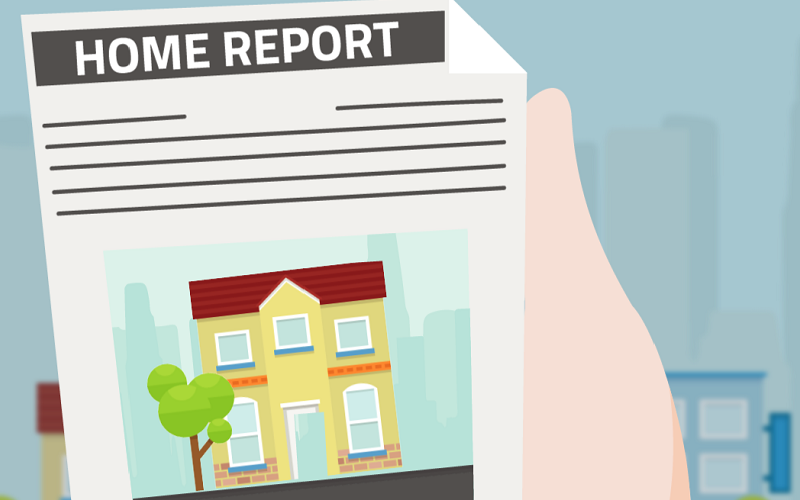
Whether you are looking to sell a property and need to give prospective buyers all of the information they need, or looking to buy and are keen to know more information about a property, a Home Report can be an essential tool.
Before 2010, a Home Information Pack (HIP), was the best way to collate all of this information for prospective buyers in England and Wales. However, the government suspended the legal requirement for HIP’s over eight years ago.
However, in Scotland it remains a legal requirement to provide all of this information, in something known as a Home Report.
But what is a Home Report? What information needs to be included? And what are the pros and cons of Home Reports for both the buyer and seller?
What is a Home Report?
A Home Report is simply a pack of documents handed to prospective buyers which includes information about a property on the market.
The Report can be divided up into three sections; an energy report (EPC survey), a single survey and a property questionnaire.
- Energy Report
An energy report, or an EPC survey will be conducted to determine how energy efficient a property is. This is measured on an A-G scale, with A being the most energy efficient and G being the least.
The outcome of a number of inspections will contribute to an EPC rating, including windows, insulation, heating systems and controls and more.
An EPC Survey is a legal requirement for domestic and commercial buildings in the United Kingdom outside of the option of a Home Report.
- A Single Survey
This simple survey will assess the general condition of a property, including internal and external walls, kitchen and bathroom fittings, the roof and more.
The survey will also offer a valuation of the property, as well as an accessibility audit for those who have a particular set of needs, including the need for wheelchair access.
- A Property Questionnaire
The questionnaire section of the Home Report aims to provide any further property information that a prospective buyer may find useful.
This may or may not include; parking arrangements, property extensions and alterations, extra living costs and council tax band.
Despite not being a legal requirement in England and Wales, a Home Report can be conducted to help convince potential buyers.
However, in Scotland, these must be completed as a legal requirement.
Benefits of Home Reports for Buyers
The most obvious benefit of a Home Report for a prospective buyer is the fact that it offers a detailed report of the condition of the property, which you can carefully assess before making any decisions.
Another major benefit for buyers is the fact that a Home Report’s valuation is now accepted onto mortgage lenders panels, elevating their importance unequivocally.
Benefits of Home Reports for Sellers
If you are a seller, a home report is a perfect way to demonstrate the selling points of your property, whilst also giving prospective buyers piece of mind regarding any otherwise unseen issue with the property itself.
Is a Home Report worth Conducting?
While those in Scotland have no option but to conduct a Home Report as a legal requirement, those in England and Wales need to assess whether this method of survey is beneficial for their situation.
The cost of a Home Report depends on the property’s valuation & size but is usually between £300 and £600. This is because some of the details included in the report can directly affect the valuation of your property.
Surveyors that include a valuation on the report can help potential buyers see what is a fair price based on the condition as well as similar properties in same area although the agent/seller will have final decision on this. Some surveyors’ valuations will be accepted by mortgage lenders and some won’t. Lenders such as banks and building societies are also increasingly instructing their own independent valuations before they conclude any mortgage offers.
However, even if your Home Report does not include a valuation, it is still an incredibly handy document to own during the process of selling a property.
You are more likely to find a buyer, as they will be confident in their investment and will see you as a reliable, well-informed seller.
It is important to note that a Home Report should be no more than 12 weeks old when your property enters the market. This is to ensure that all of the information contained within the report is as up to date as possible.
Having said that, there is no particular expiry date for a Home Report and it is the decision of the seller and/or buyer whether they would like any parts of the report updated.
A Home Report has helped the sale/buying process by simplifying the details of a property being marketed. Always make sure that if you get one it is produced by a RICs accredited surveyor.
